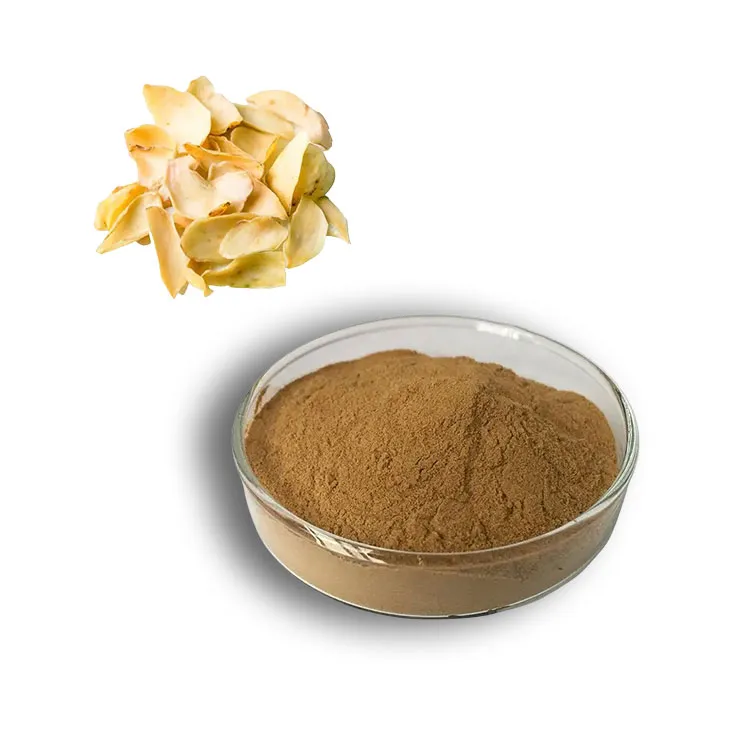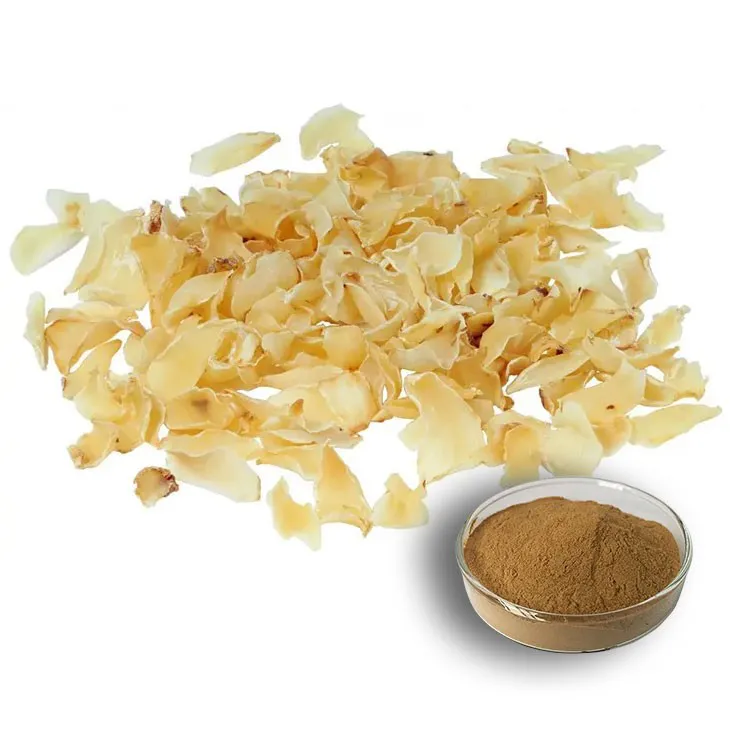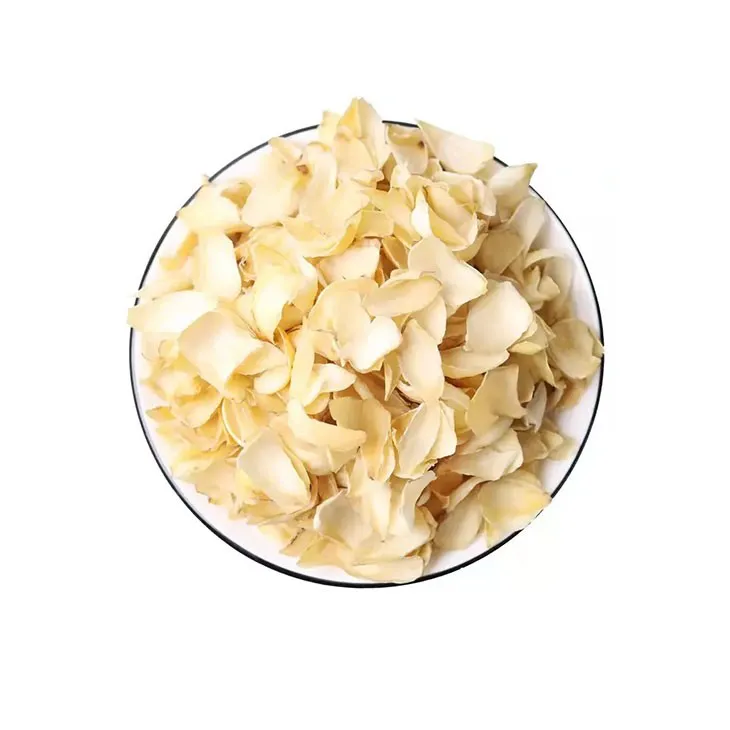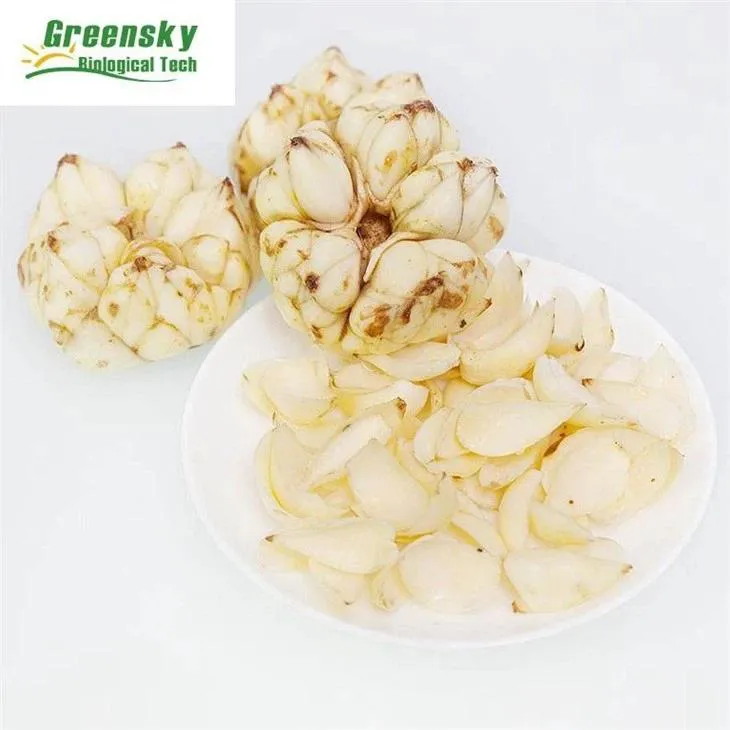- 0086-571-85302990
- sales@greenskybio.com
Manufacturer of Organic Lily Extract Powder.
2024-11-29

Introduction
Organic Lily extract powder has emerged as a highly sought - after ingredient in multiple industries. Its popularity stems from the fact that it offers a wide range of health - promoting and functional properties. The manufacturers of this powder are key players in making it available for various applications. They are responsible for a comprehensive production process that encompasses everything from obtaining the best - quality organic lilies to using sophisticated extraction methods.

Sourcing of Organic Lilies
The first and crucial step for manufacturers is sourcing the organic lilies. This is not a simple task as it requires strict adherence to organic farming standards.
Selection of Lily Varieties
Manufacturers need to be meticulous in choosing the lily varieties. They preferably select those that are grown without the use of synthetic pesticides and fertilizers. Different lily varieties may have different compositions of bioactive compounds, so the choice of variety can significantly impact the quality of the final extract powder. For example, some varieties may be rich in certain antioxidants or polysaccharides, which are highly desirable for its applications in the food, pharmaceutical, or cosmetic industries.
Quality of the Source
The quality of the sourced lilies is of utmost importance. They should be free from contaminants, diseases, and pests. This ensures that the extract powder will be pure and safe for consumption or use in various products. Organic lily farms need to maintain proper cultivation practices, such as crop rotation, proper irrigation, and soil management. Manufacturers often establish long - term relationships with reliable organic lily farmers to ensure a consistent supply of high - quality raw materials.

Extraction Techniques
The extraction process of organic Lily extract powder is a complex and delicate operation. It demands the use of state - of - the - art equipment to ensure the preservation of the valuable bioactive compounds present in the lilies.
Types of Extraction
There are several methods that manufacturers can use for extraction. One common method is solvent extraction, where a suitable solvent is used to dissolve the desired compounds from the lily material. Another method is supercritical fluid extraction, which offers the advantage of being more environmentally friendly and can often result in a purer extract. However, this method requires more specialized equipment and higher costs. Manufacturers need to carefully consider the pros and cons of each extraction method based on their production scale, cost - effectiveness, and the quality requirements of the final product.
Preservation of Bioactive Compounds
During the extraction process, it is essential to preserve the bioactive compounds. These compounds are responsible for the various health - promoting and functional properties of the Lily extract powder. For example, flavonoids in the lily may have antioxidant properties, and polysaccharides may have immunomodulatory effects. Manufacturers need to control factors such as temperature, pressure, and extraction time to ensure that these compounds are not degraded. This often requires precise monitoring and adjustment of the extraction process parameters.

Quality Control
Quality control is a non - negotiable aspect of the manufacturing process for organic lily extract powder. Manufacturers must conduct thorough and rigorous tests to guarantee the purity, potency, and safety of the product.
Testing for Purity
Testing for purity involves detecting the presence of any impurities or contaminants. This can include residues from pesticides (even in trace amounts, although organic lilies should be free from synthetic pesticides), heavy metals, and other foreign substances. Sophisticated analytical techniques such as high - performance liquid chromatography (HPLC) and gas chromatography - mass spectrometry (GC - MS) are often used to accurately identify and quantify these components. Any impurity above the acceptable limit can render the product unfit for use in industries such as food and pharmaceuticals.
Assessing Potency
Potency refers to the concentration and activity of the bioactive compounds in the extract powder. Manufacturers need to determine the levels of key compounds such as flavonoids, polysaccharides, and alkaloids. Bioassays and chemical assays are used to measure the potency. For example, antioxidant activity can be measured using assays like the DPPH (2,2 - diphenyl - 1 - picrylhydrazyl) assay in the case of flavonoids. This information is crucial as it helps in standardizing the product and ensuring that it delivers the expected health benefits in its various applications.
Ensuring Safety
Safety is a top priority. The extract powder must be safe for human consumption (in the case of food and pharmaceutical applications) or for topical use (in cosmetics). Toxicity studies may be conducted to assess any potential adverse effects. Additionally, microbiological testing is carried out to check for the presence of harmful bacteria, fungi, or other microorganisms. Any product that fails the safety tests cannot be released into the market.

Applications in Different Industries
Organic lily extract powder finds applications in a variety of industries, each taking advantage of its unique properties.
Food Industry
In the food industry, organic lily extract powder has multiple uses. It can be used as a natural flavor enhancer, adding a unique and pleasant taste to food products. For example, it can enhance the flavor of baked goods, beverages, and dairy products. It can also function as a nutritional supplement. Given its rich content of bioactive compounds, it can provide additional health benefits when added to foods. For instance, the presence of antioxidants can help in preventing oxidative damage in the body when consumed as part of a diet.
Pharmaceutical Industry
The pharmaceutical industry is interested in the potential medicinal properties of organic lily extract powder. Research has suggested that certain compounds in the lily may have anti - inflammatory, anti - cancer, and immunomodulatory effects. However, more in - depth research and clinical trials are often required to fully understand and validate these properties. Manufacturers may work in collaboration with research institutions to explore the therapeutic potential of the extract powder and develop new drugs or nutraceutical products based on it.
Cosmetic Industry
In the cosmetic industry, organic lily extract powder can contribute to skin health. It can be used in skincare products such as creams, lotions, and masks. The bioactive compounds in the lily, such as polysaccharides, can help in moisturizing the skin, improving its elasticity, and reducing signs of aging. Additionally, its antioxidant properties can protect the skin from damage caused by free radicals, which are often associated with environmental factors like UV radiation and pollution.
Sustainable Manufacturing Practices
As environmental awareness grows, sustainable manufacturing practices are becoming increasingly important for organic lily extract powder manufacturers.
Waste Reduction
Manufacturers are looking for ways to reduce waste generated during the production process. This can include optimizing the extraction process to minimize the amount of leftover lily material that is not used. They may also explore ways to recycle or reuse by - products. For example, the leftover lily material after extraction could potentially be used for other purposes such as composting or as a raw material for other products.
Energy Conservation
Conserving energy is another key aspect of sustainable manufacturing. Manufacturers can invest in energy - efficient equipment for extraction and processing. They can also optimize their production processes to reduce energy consumption. For example, by using better insulation in production facilities to reduce heating or cooling requirements, or by using more efficient motors and pumps in the extraction equipment.
Supporting Lily Farming
Manufacturers play a role in supporting the long - term viability of lily farming. This can be achieved through fair trade practices, providing technical support to farmers, and promoting sustainable farming methods. By ensuring a stable market for organic lilies, manufacturers can encourage farmers to continue with organic farming practices, which in turn helps in protecting the environment and maintaining the quality of the raw material supply.
Conclusion
Organic lily extract powder manufacturers are at the forefront of a growing industry. They are responsible for every aspect of the production process, from sourcing high - quality organic lilies to ensuring the final product meets strict quality standards and is suitable for various applications. With the increasing demand for natural and organic products in different industries, these manufacturers need to continue to innovate, improve their production processes, and uphold sustainable practices to meet the diverse needs of the market.
FAQ:
What are the main steps in the production process of organic lily extract powder?
The main steps include sourcing high - quality organic lilies, which means carefully selecting suitable lily varieties preferably grown without synthetic pesticides and fertilizers. Then, advanced extraction techniques are employed using state - of - the - art equipment to preserve the bioactive compounds. After that, strict quality control is carried out to ensure the purity, potency, and safety of the extract powder.
Why is quality control important for organic lily extract powder manufacturers?
Quality control is crucial because the extract powder is used in different industries such as food, pharmaceuticals, and cosmetics. In the food industry, it needs to be safe for consumption as a flavor enhancer or nutritional supplement. In pharmaceuticals, it must meet the required standards for potential medicinal properties. And in cosmetics, it has to be of high quality to contribute to skin health.
What are the challenges faced by manufacturers in ensuring compliance with organic standards?
Manufacturers face challenges such as accurately identifying lily varieties that are truly organic and grown without synthetic inputs. They also need to ensure that every step of the production process, from farming to extraction and packaging, adheres to the strict organic standards. Additionally, continuous monitoring and auditing are required to maintain compliance.
How do manufacturers contribute to sustainable development in the production of organic lily extract powder?
Manufacturers contribute to sustainable development by looking for ways to reduce waste during the production process. They also focus on conserving energy, for example, by using energy - efficient equipment. Moreover, they support the long - term viability of lily farming, which may involve working with farmers to promote sustainable farming practices.
What are the potential applications of organic lily extract powder in the pharmaceutical industry?
In the pharmaceutical industry, organic lily extract powder may have potential medicinal properties. However, specific applications are often subject to further research. It could potentially be used in the development of drugs for certain health conditions, or as a natural ingredient with therapeutic effects, but more studies are needed to fully understand and utilize its pharmaceutical potential.
Related literature
- Organic Lily Farming and Extract Production: Current Trends"
- "Bioactive Compounds in Organic Lily Extract: A Comprehensive Review"
- "The Role of Organic Lily Extract in Cosmetic Formulations"
- ▶ Hesperidin
- ▶ citrus bioflavonoids
- ▶ plant extract
- ▶ lycopene
- ▶ Diosmin
- ▶ Grape seed extract
- ▶ Sea buckthorn Juice Powder
- ▶ Beetroot powder
- ▶ Hops Extract
- ▶ Artichoke Extract
- ▶ Reishi mushroom extract
- ▶ Astaxanthin
- ▶ Green Tea Extract
- ▶ Curcumin Extract
- ▶ Horse Chestnut Extract
- ▶ Other Problems
- ▶ Boswellia Serrata Extract
- ▶ Resveratrol Extract
- ▶ Marigold Extract
- ▶ Grape Leaf Extract
- ▶ blog3
- ▶ blog4
-
Kidney bean extract of the best quality.
2024-11-29
-
Optimal Bioavailability of Marigold Extract.
2024-11-29
-
Ganoderma lucidum extract manufacturer.
2024-11-29
-
Bayberry extract with the highest praise.
2024-11-29
-
Nature's Bounty Ginger Extract.
2024-11-29
-
Ginseng root extract manufacturers.
2024-11-29
-
Lotus leaf extract
2024-11-29
-
Kidney Bean Extract
2024-11-29
-
Mulberry leaf Extract
2024-11-29
-
Alfalfa Meal
2024-11-29
-
Agaricus Blazei Extract
2024-11-29
-
Stevia Extract
2024-11-29
-
Nettle leaf extract
2024-11-29
-
Saw Palmetto Extract
2024-11-29
-
Licorice Root Extract Powder
2024-11-29
-
Maitake Mushroom Extract
2024-11-29





















